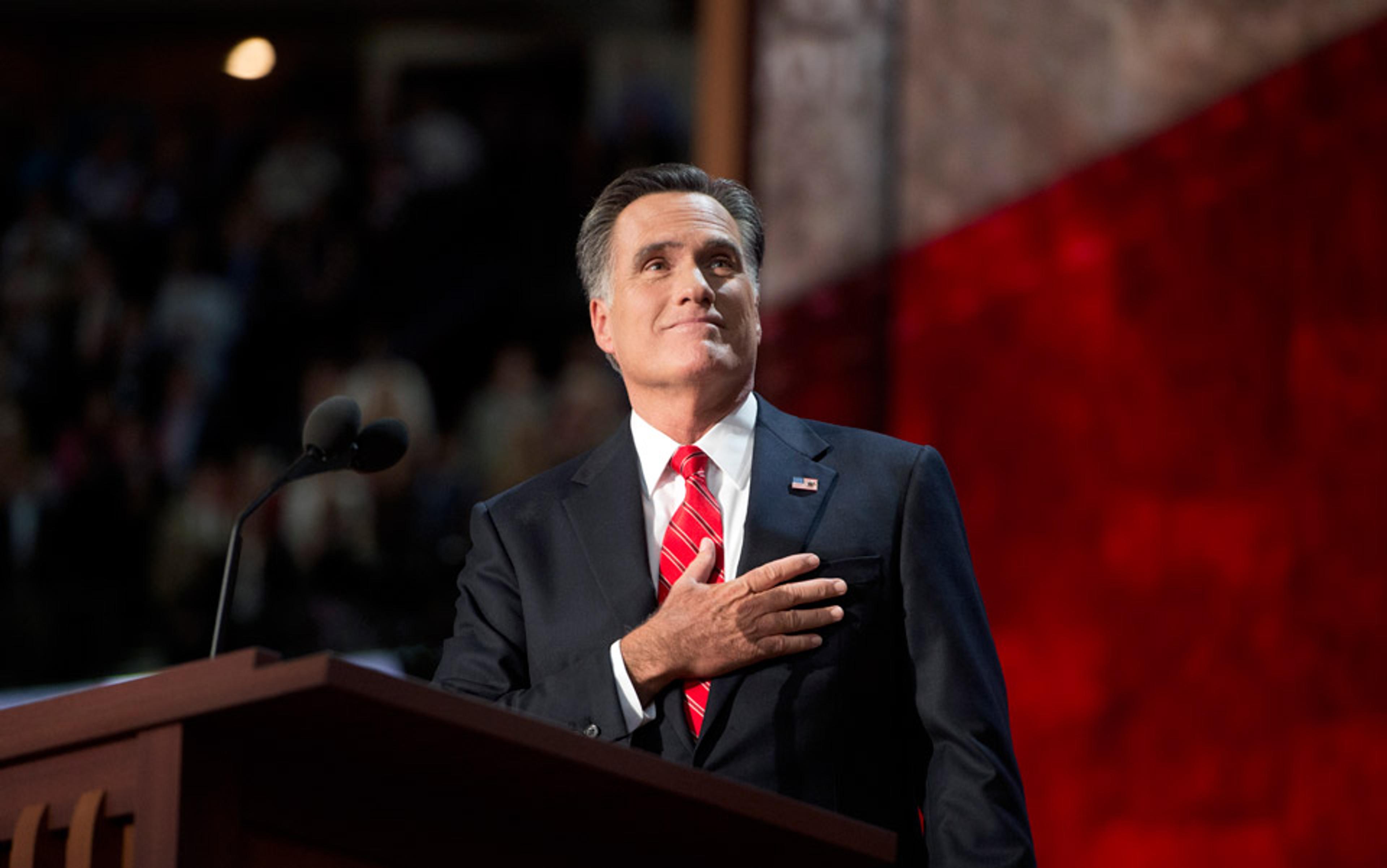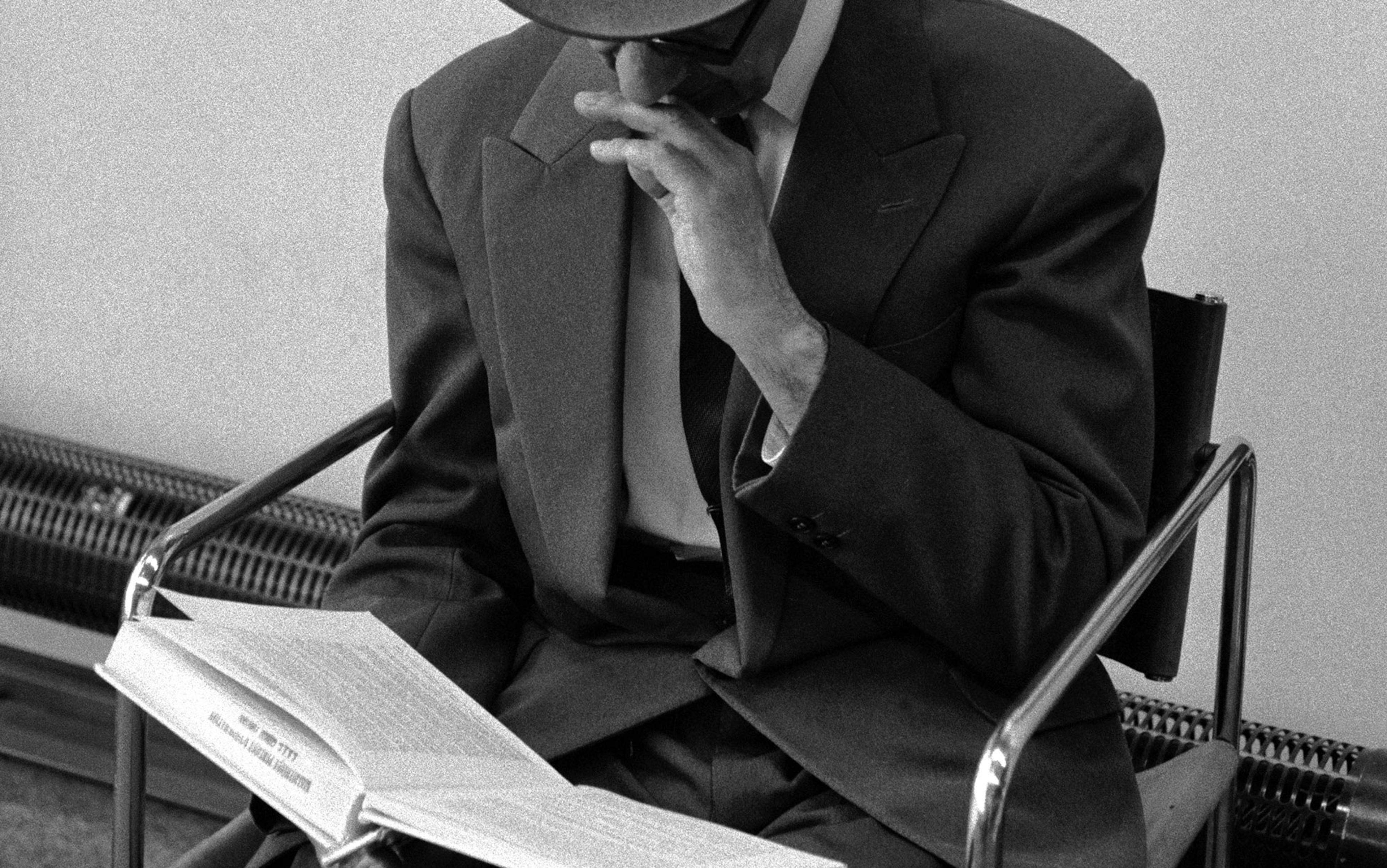In response to a leaked video in which he claimed that 47 per cent of Americans are ‘dependents,’ the Republican presidential candidate Mitt Romney did not choose to clarify his facts. He could have said that this number came from the Tax Policy Center, which also found that most households in that 47 per cent do pay payroll taxes. He could have said that of the 18 per cent of Americans who pay neither payroll nor income taxes, more than half are elderly and more than a third have incomes under $20,000. He could have admitted, more audaciously, that a few hallowed members of the 47 per cent are in fact millionaires who pay no taxes. Instead, he chose to stay on message. He chided the president for his ‘government-dominated’ politics and asserted his own vision of a ‘society driven by free people pursuing their dreams.’
Thanks to innumerable incidents like this, a debate has begun to brew on the worth of the social practice of ‘fact-checking’ political speeches. Critics argue that fact-checking reports, though written with the intent of protecting public discourse, are little more than fodder for political mud-slinging, reinforcing to party adherents the view that the other guy is the hypocrite they already thought he was. Furthermore, since elections are won by coded appeals to the research-verified prejudices of certain social groups, political messaging is inherently untruthful. To fact-check a political speech is to judge it by a different standard than that for which it was written.
Is politics as we know it therefore utterly devoid of truth? If by ‘truth’ we mean something like correspondence with a shared, objective reality, then yes, perhaps the critics are right. But it would be a mistake to ignore another kind of truth – let’s call it Truth – that is primarily a rhetorical tool, a way of signalling vision, gumption and higher purpose. This kind of Truth lords it over myriad smaller truths with the baronial and tipsy generosity of a bucolic squire negligent of the whereabouts of some of his serfs. Supporters of both parties can easily overlook a few factual errors here and there if their candidate’s larger vision for America is one they staunchly believe in. Who cares if politicians fail to tell the truth every once in awhile? What matters is that they speak the Truth!
This ‘religion of the heart’, with its emphasis on ‘proper’ emotion and inner conviction, came to dominate American life
Of course, politicians might defend their social visions while owning up to, and apologising for, factual misdemeanours. But this would be to demonstrate fallibility in a culture that tolerates none. Instead, if they care to justify their pronouncements at all, politicians often invoke a species of self-defence. During the Republican primary this spring, Rick Santorum, then a still-hopeful presidential candidate, was called out for claiming (incorrectly) that senior citizens euthanised by hospitals for ‘budget purposes’ account for five per cent of all deaths in the Netherlands. When challenged by a Dutch reporter, Santorum’s spokeswoman Alice Stewart offered a defence as curious as the original claim: ‘It’s a matter of what’s in his heart.’
Yes, she seemed to admit, he may be factually incorrect, but his words echo in their own way his genuine pro-life sentiments. Santorum spoke from his heart and that is what counts. I was reminded of Tony Blair’s insistence that he ‘genuinely believed’ there were weapons of mass destruction in Iraq, despite UN investigations repeatedly coming up empty. Or, to pick from the other end of the political spectrum, Mike Daisey’s claim that his fabricated story about exploitative working conditions at Apple’s supplier plants was ‘true’ in that it made people ‘really care’. The satirist Stephen Colbert famously called the non-truth produced by this kind of confused conviction ‘truthiness’.
It’s tempting to see these examples as the worst kind of political evasion or psychological delusion (or both). Yet the idea manifest in them – that some higher truth is present whenever genuine feeling is elicited or marshalled – is neither unfamiliar nor so easily refutable. From self-help books to sentimental movies, the mantra ‘follow your heart’, in all its opacity, is a conceptual pillar of the modern culture industry. The question is whether it can do more than hawk absurdly simple advice in a complex world. Does some form of truth, however corrupted, underlie the pop psychology? As Elvis Costello once asked, in an earnest jab at his ironic generation: ‘What’s so funny about peace, love, and understanding?’ We might also inquire: ‘What’s so funny about following one’s heart?’
But where to begin? One might argue that Americans are now living out the latest chapter of Richard Hofstadter’s Anti-Intellectualism in American Life. In this 1966 study, Hofstadter documented how the intellectually oriented Puritanism of New England gave way to a more rugged Evangelicalism as Christianity spread west with the pioneers. Allying itself with an anti-elitist, democratic spirit this ‘religion of the heart’, with its emphasis on ‘proper’ emotion and inner conviction rather than historically correct and rational understanding, came to dominate American life.
http://www.youtube.com/watch?v=VokvT0CyT5E
Without intending to, Hofstadter helped to propagate the now-entrenched dichotomy between rational intellect and anti-intellectual emotionalism. The phenomenon that I am after here, by contrast, seems wrapped up in a broader romanticism, one that hints at a synergy between head and heart. It is employed by intellectuals and anti-intellectuals alike.
What is the source of this general belief that Truth, in some higher and murkier sense than a ‘correspondence with reality,’ is a matter of inner feeling and conviction? And why, in the face of irrefutable evidence to the contrary, can this belief be summoned in even a partially convincing manner?
In 1799, Friedrich Schleiermacher, one of the founders of modern liberal theology, wrote a series of speeches on religion dedicated to its ‘cultured despisers’. Like others before him, Schleiermacher laments the doctrinal quibbles and ritual idiosyncrasies that separate Christians from one another. In an effort to counteract the malicious divisiveness wrought by the ‘plastic spirit of high contemplation’, he argues that genuine piety requires no great contemplative feats. Rather, the true seat of religion is the ‘inner sanctuary’ of feeling in which one bears an ‘immediate consciousness’ of the divine. Since this lies ‘directly on the bosom of the infinite world’, it is ‘raised above all error and misunderstanding’.
At various points in his speeches on religion, Schleiermacher associates this inner feeling with a kind of intuition, or particular way of grasping the world. He speaks of religious intuitions as ‘self-contained’ and ‘set apart’ from abstract thought, if nonetheless a form of apprehension and conception. In the second edition of his speeches, Schleiermacher drops many of these references to intuition. His fear was precisely that it made the ‘inner sanctuary’ seem too much like a place of special access to truth (take note, Mr Santorum).
But the damage was already done. Schleiermacher’s inner feeling caught on as a mode of attaining higher forms of transcendent knowledge.
Schleiermacher’s theology no longer draws the adherents it once did, given the general retreat from his brand of liberal Protestantism. According to the neo-orthodox theologian Karl Barth who in many ways led this turn, Schleiermacher made the mistake of thinking he had really understood Christianity. In Barth’s Kierkegaardian view, this was the greatest offence a person of faith could commit. Schleiermacher ‘did not speak as a responsible servant of Christianity but … as a free master of it’, and the hubris of his theological style is echoed in the calm self-assurance of his vision of piety.
Though much closer in spirit to Schleiermacher, the theologian and philosopher Paul Tillich expressed similar worries about the theology of religious feeling. Too much emphasis on inward conviction, he believed, ran the risk of devaluing the external world to the point of narcissistic isolation.
By the time these criticisms were launched, the liberal Protestant theology of the early 19th century had already metamorphosed, transcending the bounds of theology. As the modern concept of religion emerged in the work of comparativist pioneers such as James Freeman Clarke and Cornelius Tiele, the template for determining the ‘great religions’ of the world was undoubtedly their own Protestantism. As such, religions were (and still are) seen as ‘faiths’ that involve ‘beliefs’, centred around the teachings of divinely inspired individuals (Buddha, Mohammed, Zoroaster). This means that in addition to being one of the so-called world religions studied in departments of religion, Protestantism is also the conceptual frame for the entire field.
One of the ways this is blatantly evident is in the emphasis placed on religious experience. In William James’s The Varieties of Religious Experience (1902) and Rudolf Otto’s The Idea of the Holy (1917), both founding texts in the academic study of religion, one finds the idea that the essence of all religion lies in a sui generis feeling for an ineffable ‘more’ in the universe. That’s a clear inheritance from Schleiermacher. For this academic class, religion was a universal feature of humankind (so-called homo religiosus). All human beings were supposed to bear within them the kind of ineffable feeling that points to a higher truth. And as this thinking seeped into popular culture, so Schleiermacher’s theology transcended its Christian context.
I do not mean to suggest that Schleiermacher is to blame for the Rick Santorums of the world. But his ideas did contribute, through the simultaneous secularisation and universalisation of liberal Protestant theology, to a situation where some form of truth can be appealed to from the safety of an ‘inner sanctuary’. Tillich was exactly right when he said that the theology of religious feeling lent itself to a subjectivism that spurned external validation.
All the same, it is important to recognise that Schleiermacher invoked religious feeling not to insulate belief from criticism, but to encourage interreligious dialogue in a pluralistic world. Given the bounteous variety of systems and practices, he looked to inner feeling as the essential oneness around which religious people could cohere, celebrating rather than fighting over their differences. In an impassioned defence of pluralism that still reads freshly today, he asserted that truly pious people honour all religious concepts and rituals and flee ‘with repugnance the bald uniformity which would again destroy this divine abundance’. In short, Schleiermacher’s theology of feeling was an attempt to open conversation between people with different doctrinal allegiances. Its use in political discourse tends, by contrast, towards the evasion of dialogue.
A proper historical sense is not the only gain here. The problem is that an essentially theological point, divorced from its theological context, has run rampant in the absence of a corresponding shift in justificatory framework. Perhaps by returning to that framework we can show the limits of the original point, engaging and critiquing it without rejecting it as nonsense.
Schleiermacher’s speeches on religion quickly qualify the idea that feeling is the true site of religion. He argues that this inner sentiment, if it is to exist at all, must find outward, social expression. It is in dialogue with people of differing beliefs that true religious feeling is cultivated. The implication is that an inner feeling that resists outward manifestation (and spurns dialogue) is no feeling at all. It is a simulacrum of feeling, a narcissism that poisons the social realm by masquerading as authenticity.
On this reading, politicians who call upon ‘what’s in their heart’ to justify their untruths do not speak out of inner conviction. They speak from the false confidence of men in artificially small ponds of their own making. If they find an audience, it is not because they are catalysts of dialogue, but because their adherents, seeing a reflection of themselves, mistake the familiar for the true.






